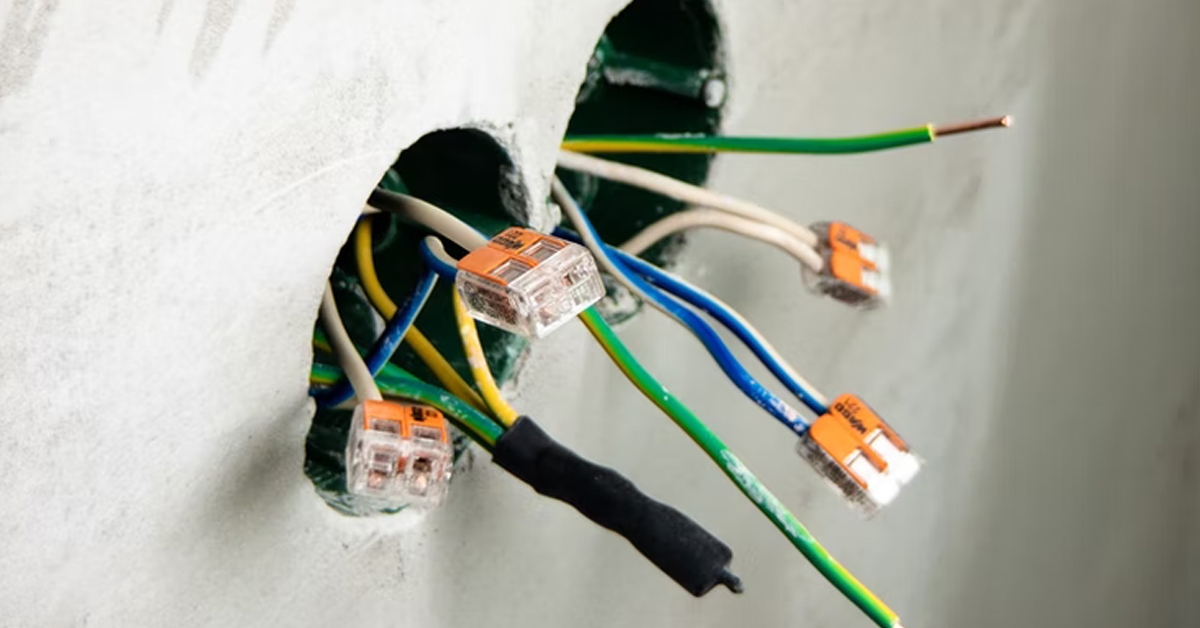
If you’re like most people, you probably don’t think about home wiring until something goes wrong. But if you want to avoid costly and dangerous mistakes, it’s important to know the basics of home wiring. In this blog post, we’ll list six common mistakes made with home wiring, and we’ll provide tips for avoiding them. So, read on to learn more!
1. Not Having a Ground Wire
If you look at a home’s electrical wiring, you might notice that the home has three wires: a black wire, a white wire, and a bare copper ground wire. The grounding wire serves as an important safety feature.
If you notice that your home doesn’t have a ground wire, it’s important to act immediately. One way to fix this is to call an electrician who can install a grounding wire for you. Otherwise, you’re at risk of electrical shock, and in some cases, fire.
2. Not using the correct type of wire for the job
It’s important to use the correct type of wire when doing home wiring, as using the wrong type can be dangerous. For instance, a home should have a home wire that’s rated for at-home usage.
Another thing to keep in mind is that wiring isn’t universal. So, if you’re adding home wiring, make sure the home wire you use matches with the home’s electrical system.
3.Failing to use cable ties and other fasteners
Loose home wiring can be dangerous for a few reasons. First, hanging home wire can cause home fires. Second, loose home wiring can also cause home electrocutions.
To avoid these dangers, it’s important to use cable ties and other fasteners to keep home wiring in place. You should also make sure that home wiring is properly secured to the walls and ceilings of your home.
So, if you notice that home wires are hanging loosely, make sure to ratchet them down with cable ties or other fasteners. Doing so will help prevent catastrophe.
4.Not using a circuit breaker
The importance of a circuit breaker is that it helps protect your home from electrical overloads. If there is too much electricity running through your home’s wiring at once, a circuit breaker will trip and shut off the power.
The circuit breaker provides an extra layer of protection for your home and your family. Without it, home wires could short circuit due to home wiring overload.
When a circuit breaker is tripped as a result of home wiring overload, it should be switched off. If your breakers are tripping on a regular basis, you may want to contact an expert electrician to investigate the situation.
5.Running wires under rugs and carpets
It’s tempting to run home wiring under rugs and carpets, we see it all the time– but doing so can result in major safety concerns.
That’s because home wire insulation is designed to promote electrical safety when the wire is dry. But home wires can be seriously damaged if they’re run under rugs and carpets because the insulation will get damp.
To prevent home wiring damage, make sure home wires aren’t covered by anything (except for cable ties and other fasteners) while they’re still in the walls of your home.
6. Forgetting to turn off the power when working on wiring
It’s important to turn off the home’s electricity before starting a home wiring project.
This is because home wires may be carrying electricity, even when they’re switched off. If you’re working on an active system, you risk being injured or shocked.
To turn off home wiring, you can shut off the home’s breakers one by one. Then use a non-contact voltage detector to check that there’s no electricity running through your home’s home wires before starting your project.
While it’s important to be mindful of potential mistakes when wiring your home, it’s also crucial to remember that these errors are fixable. If you’re unsure about how to correct any of the issues we’ve highlighted, don’t hesitate to reach out for help. A professional electrician can get your electrical system up and running in no time – and with fewer headaches (and potentially dangerous mistakes) on your part. Do you have any questions about home wiring? Let us know! We’re happy to help.

Recent Comments